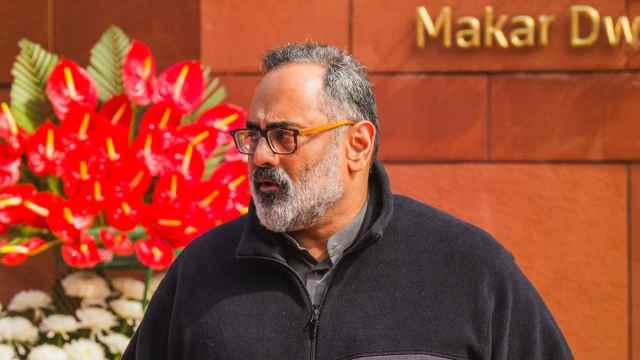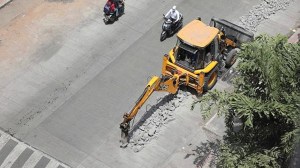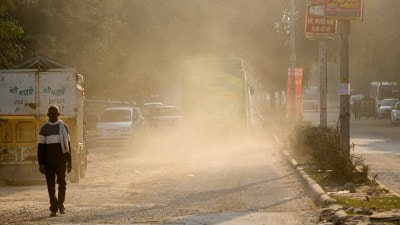No platform can deny creators access to distribute, monetise their content: MoS IT Rajeev Chandrasekhar
Speaking at the Digital News Publishers Association Conference in Delhi, Chandrasekhar said a deep asymmetry prevails between the content creators and the companies that monetise the said content.
 Union Minister of State and BJP MP Rajeev Chandrasekhar at the Parliament House complex during the Budget session, in New Delhi, Friday, Feb. 2, 2024. (PTI Photo)
Union Minister of State and BJP MP Rajeev Chandrasekhar at the Parliament House complex during the Budget session, in New Delhi, Friday, Feb. 2, 2024. (PTI Photo) Minister of State for IT Rajeev Chandrasekhar on Tuesday said that no technology company or social media platform can deny content creators the access to distribute and monetise their content.
Speaking at the Digital News Publishers Association (DNPA) Conference in Delhi, Chandrasekhar said a deep asymmetry prevails between the content creators and the companies that monetise the said content. While technology giants like Google and Meta have been the major players in the space for a significant amount of time, the government does not want the internet or the monetisation of the internet to be in the hands of just one or two companies, he said.
“We want the Internet to be open… We do not like monopoly or duopoly. We don’t want 120 crore Indians on the Internet in 2025 should be catered to by big islands on the Internet — whether it be e-commerce, search, social or ad tech,” the Minister of State for Skill Development and Entrepreneurship and Electronics and Information Technology of India said.
He highlighted that the large technology companies have begun to play God when it comes to the dissemination of content and this has become an area of concern for publishers and content creators. “Social media platforms initially encouraged views and current affairs and encoded the content because they wanted more and more users to gravitate towards it. Now when there is a robust ecosystem of influencers and content creators, they (the platforms) are playing God,” he rued. “I have a certain view that no platform can deny a content creator access to the platform to distribute and monetise it.”
Chandrasekhar stated that if at all the platform finds it necessary to block any content, they need to give reasons or grounds to the creators, stating that the content is violating norms.
As India tries to establish itself as an innovator in the technology sector, a recent corpus of Rs 1 lakh crore was announced by the government in the interim Budget.
As big companies continue to tighten their stronghold on the sector, content moderation has also become crucial. Under the IT Rules Act, 11 types of categories are unlawful under IT Act as well as the criminal law. According to Chandrasekhar, a platform has to ensure no user of the platform posts content which falls under the bracket of these 11 categories. The platform has to take down any such content posted on the platform and the user has to be gatewayed to either deplatforming or prosecuting. “Nobody can argue that content violating someone else’s ownership is an overreach or misinformation and using deepfakes and patently false information is unlawful because under the criminal code under 469, under 177, these are all prosecutable crimes,” Chandrasekhar highlighted.
While India continues to battle misinformation that became rampant with the internet boom, Chandrasekhar believes that the government has to protect the fundamental rights of people. He emphasised legislative guardrails to ensure platforms are accountable for the correctness of the content. The responsibility of the platforms is to be doubly and triply sure that what consumers consume is the truth, he said. “We are a country of 90 crore today and we are surrounded by people who want to slow us down. Spreading misinformation and using it to cause chaos and disturbances in India is an option they choose due to it being the vulnerable underbelly of democracy,” Chandrasekhar added.
Former NITI Aayog CEO Amitabh Kant said the country’s policy is to keep its digital landscape competitive. “Western world has grown in recent years on the back of Big Tech. It’s the same case with China, and it’s a case of monopoly. But India is the only country that’s taken a different route,” he added.







